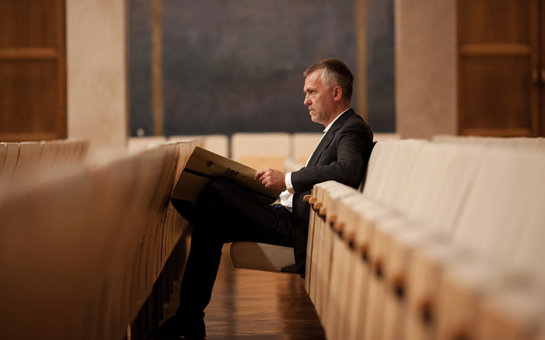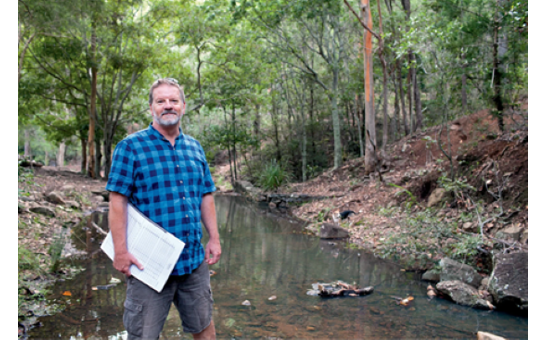Orchestral works from the historic Heinrichshofen & Nötzel Musikverlage are now available from Wise Music G. Schirmer Australia in the Asia-Pacific countries (excluding Japan). The performance materials are on hire from Wise Music Australia’s hire agents: Edition Korea for South Korea, and Origin Music for the rest of the Asia-Pacific territory.
Heinrichshofen Verlag has been publishing musical works since 1797. This makes it one of the oldest, continuously operating, music publishers. Heinrichshofen is synonymous with high quality performance material, excellent readability and playability. Boasting a fascinating corporate history, the varied catalogue features works from Austrian, Swiss and German composers adding interesting repertoire for orchestras, chamber musicians and soloists.
Catalogue highlights include:
Suite for 10 Wind instruments and Harp Op. 19 by Leland Albert Cossart is one of the best woodwind compositions in 20th Century chamber music. Composed for double wind quintet, with the 2nd oboe doubling cor Anglais, and harp, this is 45 minutes of lush French wind writing.
Concerto Sereno by Richard Rudolf Klein for trumpet and chamber orchestra is a colourful addition to the small trumpet concerto repertoire. This concerto is 14 minutes of gentle and expressive writing. An ensemble consisting of a flute, clarinet, 2 bassoons, 2 horns and strings supports the trumpet solo. Concerto Sereno is suitable for the amateur and professional player alike.
Concerto D-Dur for horn and orchestra by Michael Haydn is one of the better known Michael Haydn concertos for horn. Beautifully scored for oboes, horns and strings this concerto will delight audiences and performers with its clarity of classical sound. This Concerto in D Major (Perger 134/MH 134) is Michael Haydn’s most frequently performed horn concerto.
Concerto for Violoncello and Orchestra by Rudolf Kelterborn is a substantial work in one movement. It is a powerfully impressive, richly expressive work, and one of the finest cello concertos of the 20th century. It ranks alongside works from Dutilleux, Leighton and Lutoslawski. The difficult and technically demanding solo part is present throughout the often thinly scored orchestral accompaniment.
4 Kleine Stücke für Orchester by Franz Schreker was written in 1929-1930 whilst he was at the peak of his career. During his lifetime Schreker was the most performed living opera composer after Richard Strauss. His decline in popularity only emerged because of antisemitic feelings in Germany. The 4 Kleine Stücke are miniature Strauss-like tone poems, and is worthy of further performances in our region.
Two versions of this work are available, the original (sound clip below), and the Johannes Schöllhorn arrangement for smaller orchestral forces.
The program music Feuertanz "Fire Dance", by Mitsch Kohn, is the first part of a larger composition that deals with the elements of fire, water, air and earth. The work musically represents "fire" on the orchestral stage. Originally conceived as a university compositional thesis, the work won the Unisong Award 2003 in the category "Best Instrumental Piece" at the composers' competition of the US Song Awards.
Auf der Strasse nach Paris (On the Road to Paris) by Ernst Fischer is a small French March. Delightful in its cheery nature and clean wind and brass writing, it is a work which audiences will enjoy. Programmers will be able to expand their repertoire of Paris-inspired works.
Per la Camerata by Hermann Haller for 9 violins, 3 violas, 3 violoncellos and double bass is an atmospheric string orchestra work. Stemming from the Second Viennese School of composition this 13 minute work brings an almost Schönbergian drama to light.
Hermann Haller: Per la Camerata (1974) - YouTube
Begleitmusik zu einer Lichtspielszene op. 34 by Arnold Schönberg is presented in two versions for hire: the original versión; and a smaller chamber orchestra version by Johannes Schöllhorn.
Schönberg composed the Begleitungsmusik zu einer Lichtspielscene for Heinrichshofen Verlag in Magdeburg. Heinrichshofen Verlag included the work in a commemorative collection of scores it commissioned from German film composers. Schönberg had no particular film or film scene in mind while composing the work, however the music was adapted for a short film by Straub–Huillet in 1972.
Explore the catalogue today!





